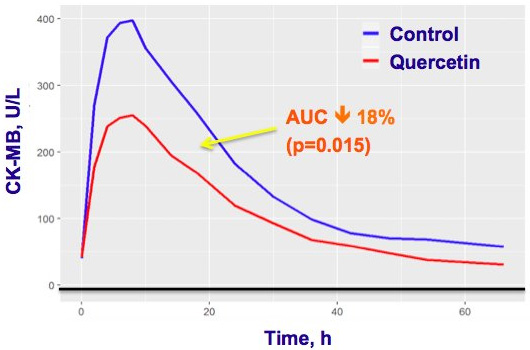Early and successful myocardial reperfusion by either thrombolysis or primary percutaneous coronary intervention improve survival in ST-segment elevation myocardial infarction (STEMI) patients. Several strategies, including administration of cardioprotective agents, were tested to prevent microvascular obstruction and myocardial injury after reperfusion. There is some experimental data of anti-ischemic properties of bioflavonoid quercetin (Q) and its capability to limit myocardial injury and prevent left ventricular (LV) remodeling. We have hypothesized that the addition of intravenous Q to standard therapy would limit infarct size in patients with STEMI.

